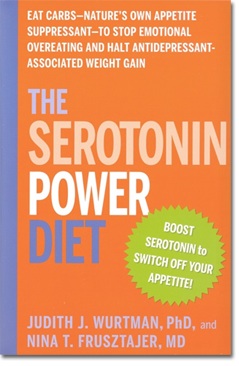 Awhile back a reader asked me if I’d cover the topic of intimacy complications with regard to antidepressants.
Awhile back a reader asked me if I’d cover the topic of intimacy complications with regard to antidepressants.
Ah. Yeah. Every time I write about this controversial topic, I usually get hammered by the left, right, and center–this is obviously delicate ground–so let me tread lightly.
In a recent Johns Hopkins Health Alert called “The Challenge of Antidepressant Medication and Intimacy,” I read this:
While sexual dysfunction is a frequent symptom of depression itself (and successful treatment of depression may eliminate it), antidepressant medication can sometimes worsen or even cause sexual problems. In fact, sexual dysfunction is a potential side effect of all classes of antidepressants.
Between 30% and 70% of people who take antidepressant medications experience sexual problems, which can begin within the first week to several months after starting treatment. Antidepressant-related sexual dysfunction can affect almost any aspect of your sex life. In men, it frequently causes erectile dysfunction (the inability to achieve or sustain an erection), and in women, antidepressants may cause vaginal dryness and decreased sensation in the genitals. In both genders, antidepressants can diminish sex drive and make achieving orgasm difficult or impossible.
Sexual dysfunction due to any cause, including antidepressants, can have effects that range far beyond the bedroom, including psychological distress and a decrease in self-esteem and overall quality of life. This causes many people to stop taking their antidepressant medication. Up to 90% of people who experience antidepressant-related sexual dysfunction stop taking their medication prematurely. Fortunately, you can regain your sex life without stopping your medication and risking your symptoms worsening. For example:
From my research on this topic, psychiatrists usually recommend a few things:
* Switching to an antidepressant like Wellbutrin that has a lower rate of sexual side effects. Or adding Wellbutrin to your current antidepressant because recent research says that small doses of Wellbutrin (75 to 150 mg) in combination with another antidepressant can actually be helpful in decreasing the sexual side effects of those antidepressants.
* Another possibility is adding Viagra into the mix. It has been proven to help BOTH men and women with sexual dysfunction.
* Your doctor may experiment with decreasing your antidepressant ever so slightly, to see if that helps with sexual side effects.
* You could change the time you take your medication. For example, if you usually have sex sometime after dinner but before bed, it would be best to take your meds after sex but before bed, because the blood levels of the drug are going to be lowest the next day after dinner (when you typically have sex).
* Dividing your doses is also a possibility.
* And finally, implementing a “drug holiday” might be an option. That is, not taking your meds for two days or so. According to Karen Swartz, M.D. of Johns Hopkins Mood Disorders Center, “evidence shows that periodic two-day breaks from antidepressant therapy can lower the rate of sexual side effects during the drug holiday without increasing the risk of a recurrence of depressive symptoms.”
My plan? To experiment with a few of these when I reach a more stable place.
I’ve been saying that for about three years, because right as I think I’ve hit even ground and can do a drug holiday or try adding Wellbutrin or go to sex school, something happens and the black dog has my ankle again. So for now, I stay a tad challenged in this area.
* Click here to subscribe to Beyond Blue and click here to follow Therese on Twitter and click here to join Group Beyond Blue, a depression support group. Now stop clicking.

